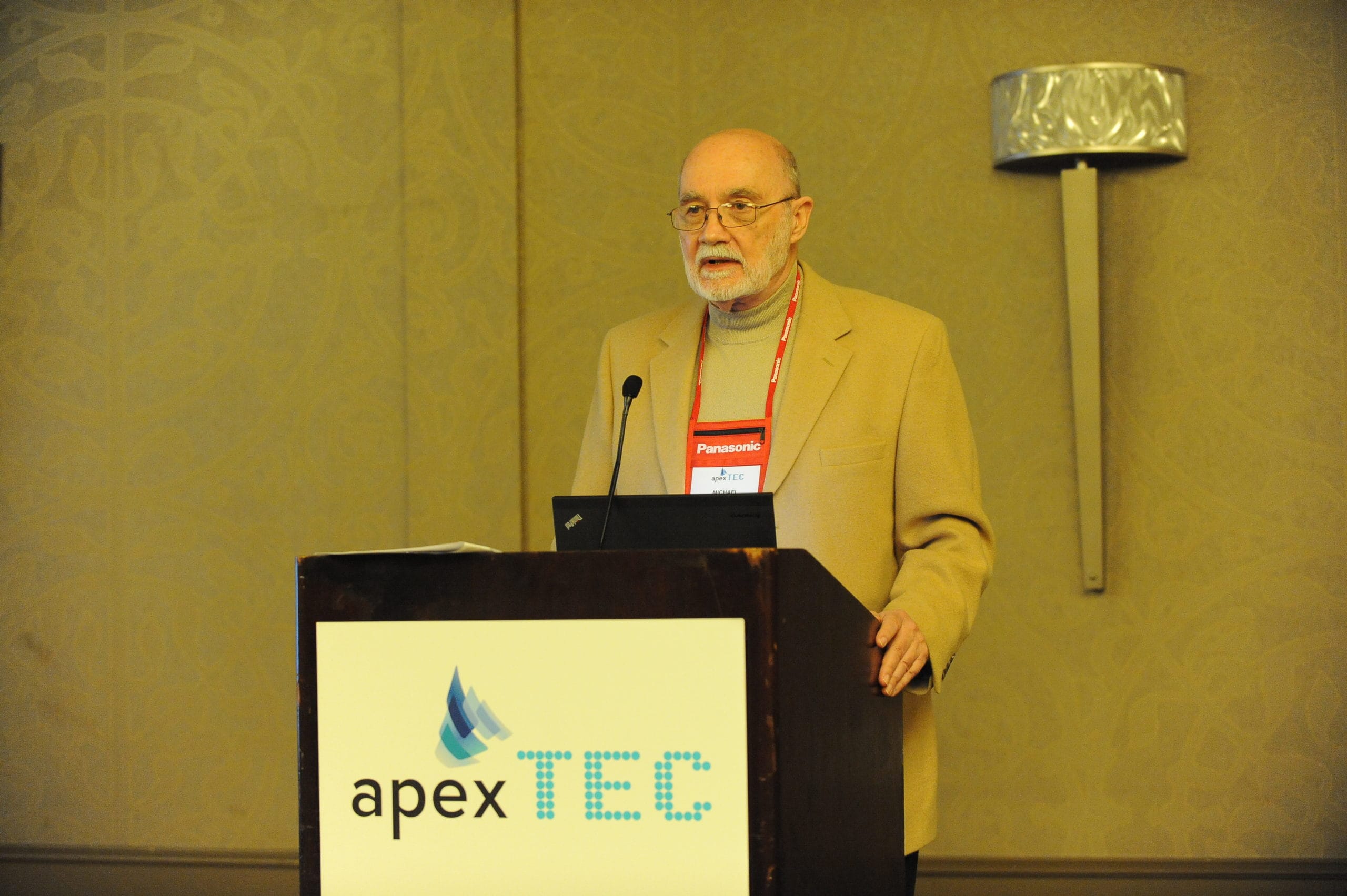APEX TECH Update: IFE Accessibility for Sensory-Impaired Passengers
Share
 Michael Childers, Technology Committee Chair & Board member, APEX
Michael Childers, Technology Committee Chair & Board member, APEX
Michael Childers, APEX Technical Committee Chair and Board Member led the first session on day two of the APEX TECH conference in Newport Beach. In the first of two morning panels to discuss Technologies for Disabled Passengers, Childers was joined by Geoff Freed, director of Technical Projects and Web Media Standards, NCAM.
Earlier this month, Childers, APEX Executive Director Russ Lemieux, and Donna Danielewski, Director of the National Center for Accessible Media (NCAM), were invited to Washington DC to speak at the Department of Transportation’s (DOT) Disability Forum. In a session dealing with Disability Issues in Air Transport, Childers, Lemieux and Danielewski reviewed APEX’s accomplishments regarding the implementation of closed captioning in in-flight entertainment (IFE) systems. The audience was comprised of representatives of the disabilities community, airlines, A4A and IATA and officials from the DOT.
Since 2006, when the technology was not yet available to integrate closed captions into IFE content, almost half of the installed IFE systems now support APEX’s 0403 closed captioning standard. Nearly all IFE systems currently being sold will support captions, and by Q1 2015, only IFE systems that support captions will be available on the market.
The APEX delegation explained how aircraft IFE systems differ from home consumer electronics, including televisions, which have been federally mandated to include caption decoding technology for over 20 years. The APEX team also outlined some of the technical obstacles the industry still faces, including mixed standards, varied production workflows, and the repurposing of caption data from other sources.
At APEX TECH, Childers noted that there’s still much work to be done by the APEX Closed Caption Working Group. The new challenges will be to identify and codify caption profiles and specifications, in order to further define the APEX closed captioning standard. Time is of the essence, since it’s expected that next year, the U.S. Department of Transportation will announce new rules involving closed captions, which may also include descriptive audio services for the blind and visually impaired.
NCAM’s Geoff Freed showed members examples of descriptive audio, with clips from the PBS series “Downton Abbey,” and FOX’s “The Simpsons.” Using an extra audio channel, a narrator describes the important action that’s appearing on the screen, speaking only during breaks in the program’s dialogue. Freed also demonstrated a screen reader, an app that allows a blind user to “hear” what buttons are being pressed on a touch screen. Freed says that this kind of technology could be modified for an IFE user-interface system. “You don’t have to reinvent anything,” he says.
Part two of the session was a panel moderated by Jonathan Norris, APEX Closed Caption Working Group Chair, with Andy Grant, Emirates; Éric Lauzon, Air Canada; Doug Mullen, Airlines for America: and Mark Smith, American Airlines. The panel reviewed the initiatives each of their organizations has made, and the challenges that are being faced in the implementation of accessibility for sensory-impaired passengers.
APEX Members can find additional information on closed captioning updates here.


